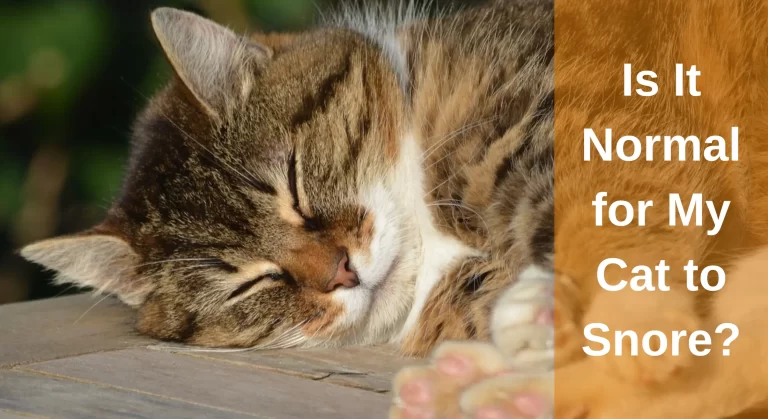How To Stop My Cat From Biting and Attacking Me?
Before thinking about how to prevent a cat from biting and attacking you, it’s important to comprehend why cats attack their owners without warning. Understanding the methods used to stop the behaviour is made much simpler by identifying the problem’s root cause.

Why Do Cats Attack?
I often get vicious bites from my cat for one of the following reasons:
1. Fear and Defensiveness
If your cat feels stuck in a dangerous situation from which they cannot leave, they may fight without being provoked. The more terrible the scenario is, the worse their attack will be.
2. Territorial Aggression
Cats fiercely mark their territory by rubbing, scratching, and urinating on it. Cats are quite aggressive. If they feel that a person or another animal has entered their territory, their instinctive response can be to battle the intruder, protecting it and restoring it as their own. Since cats are merely attempting to play with you, misplaced play is frequently the source of unprovoked aggression in cats.
3. Medical Conditions
Certain illnesses that cause severe pain and suffering might make cats act aggressively. Examples include rheumatoid arthritis in cats, physical injuries, and oral diseases like gingivitis.
4. Petting Aggression
It occurs when a cat becomes overstimulated and begins to gently bite its handler. They’re trying to convince you to stop since your strokes are now painful and unpleasant. This antagonism is not physical in nature, and injuries are typically avoided.
5. Redirected Aggressiveness
A cat exhibits this form of hostility when it realises that it can’t get to the creature making it angry or threatening. They could look out the window and see a dog, for example. When this happens, your cat can turn its aggression back against you, a different member of your family, or another animal.
How to Calm Down a Fierce Cat?
Some people assert that their cats are hostile. If you don’t want to give up on your combative cat, try these methods to get him to calm down.
1. Provide a Safe Environment
Your cat could feel uneasy and want a relaxing environment. Despite the fact that they may get along, cats nevertheless need time alone. You may accomplish this for your cat by providing a cat condo, stairs that go to a high shelf, or a special space designated just for your feline companion.
2. Speak with a Veterinarian
An underlying medical condition may be indicated by this sudden change in behaviour. Veterinarians believe that your cat’s aggression may be caused by discomfort from conditions like arthritis or an illness.
3. Don’t Shout
While you’re attempting to calm down your cat, it’s a good idea to make the most of your time together. Your link with your cat gets stronger as you connect with it. If you do this, your cat will realise that you are only there to ensure its safety.
4. Break up Cat’s Fight
Make sure you have something on hand to break up a catfight, such as a spray bottle, a piece of cardboard, or a blanket. These are effective de-escalation and pacification techniques.
5. Keep your Children Away
Cats seldom accept a child’s activities, according to experts on animal behaviour. To avoid needless trips to the ER or the veterinary institution, it is advised to keep your small children and cats in different regions.
How should I Respond If My Cat Attacks Me?
Now that we are more aware of the reasons why cats could bite and attack us if not provoked, Here are some recommendations for reducing that negative and aggressive behaviour.
1. To Play with your Cat, Schedule a Time
One of the biggest causes of cats acting aggressively without being provoked is misdirected play. Plan every day play with your cat to help reduce their aggressive outbursts. Spend at least 15 minutes a day playing with a feline buddy.
2. Make a Calming Ambience in Your House
In addition to being secure, your living space should be pleasurable. There are a few easy things you can do to create a calm and stress-free atmosphere for your cat, like:
- Provide Good Litter Boxes: If a cat has the best litter box, it will be happy. It must be immaculate, the right size, in the right place, and have the right quantity of rubbish inside. If you have many cats, you need one additional litter box in addition to the one for each cat.
3. Avoid Abrupt changes
Cats dislike change and may become quite agitated if they detect new sounds, smells, or objects in your home. Try implementing necessary adjustments gradually.
4. Take Your Pet to the Veterinarian
If your cat is found to have a medical condition, treating the underlying problem should put a stop to the cat’s unwarranted antagonism.
5. Provide more Stimulus
A great method to spend the time is to play with your cat. But for your cat to be content, additional stimulation is required. Furthermore, a happy cat is not a hostile cat. To entice cats into your home, you can purchase or use a range of objects, such as:
- Cat trees and Scratching posts: If it’s feasible, place a container outside or use unusual items to study puzzle feeders and bowls that stimulate the intellect.
6. Recognize the Warning Signs of Aggression
A cat won’t often purposefully bite or scratch its owner. Most of the time, the person inadvertently approaches their cat while behaving angrily toward another item or for a completely unrelated reason.
Also, Check Out: Why is My Cat Attacking Me All of a Sudden?
How Should I Handle a Cat Bite?
Even though we make every effort to avoid cat attacks, your cat may nevertheless bite you occasionally. You can use the quick checklist below if your cat were to suddenly and violently attack you:
Treat your Wounds
You need to give your wounds the utmost attention. You might need to securely confine your cat in a different space where they have access to all of their requirements before tending to your wounds. Consequently, you may attend to the wound without being concerned about being attacked once more.
Record the Occurrence
You must accurately and completely document the situation. It will be easier to stop needless violence in the future if you keep account of every assault and the patterns that trigger it.
Give your Cat proper Care
You should allow your cat some room to relax and calm off after a particularly unpleasant outburst. Feed them as usual, and take care of the litter box, but otherwise, let them alone. Keep your distance and avoid making eye contact with them.
Contact veteran
If your cat routinely behaves violently toward you or other people, contact a veterinarian. They will be able to establish whether it isn’t the consequence of a mistake, in addition to offering advice on how to improve and solve the problem.
Never give Punishment
Most importantly, never correct your cat physically or verbally if they bite or scratch you. This will just heighten their level of fear, which might exacerbate their aggressive tendencies. Further, some cats can see this as a test and lash out even more in the future.
How to Discipline a Cat?

1. Don’t give Punishment
Cats don’t learn via punishment, but you may teach them to value good behaviour by rewarding it with praise and nutritious food.
2. Redirect Your Attention away
One of the greatest methods to convey your message and halt undesirable behaviours like biting, chewing, and pouncing may actually be to redirect your attention away from your cat.
3. Do keep your Cat’s Health in Mind
Your cat’s health status and if this change in behaviour is a sign of a health change may both be determined by your veterinarian.
4. Make Environmental Changes
There are things you can do to encourage your cat to stop climbing on your tables and scratching your leather furniture. A smooth, silky blanket on the couch can make your cat fall off if she attempts to climb up onto the cushions of your leather couch.
5. Spend time with Her
The most important things to remember while learning how to discipline a cat are to interact with her and praise her for positive behaviour.
The Bottom Line on How To Stop My Cat From Biting and Attacking Me
Cats often act aggressively without being prompted, which can have unpleasant and severe consequences. Cat’s physical attacks on their owners are bad enough, but when she does it in front of guests or kids, that’s even worse. She never means to hurt someone, yet she often comes out as scared or possessive.
Your cat can be angry with you, while a kitten or playful cat might treat you like a toy. Finding a solution for aggressive behaviour, which is also linked to overstimulation, health problems and maternal instincts requires understanding the reason.
Who is Isabella?
My name is Isabella, and I am a dedicated and knowledgeable cat enthusiast. With years of experience caring for cats and a deep love for felines, I made a mission to help other cat lovers navigate the challenges of cat ownership.






